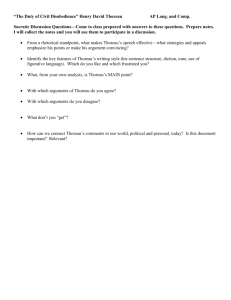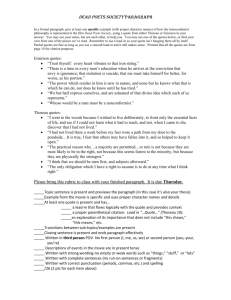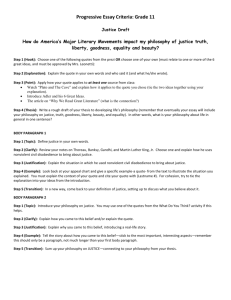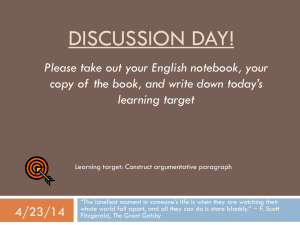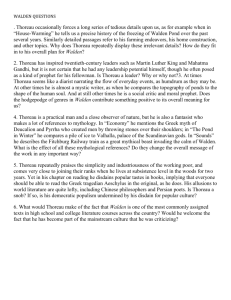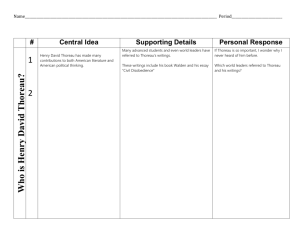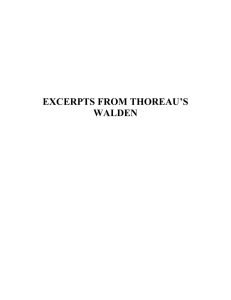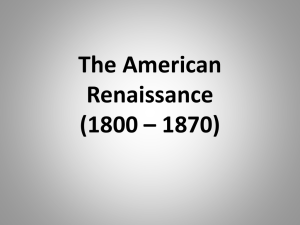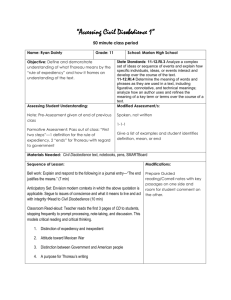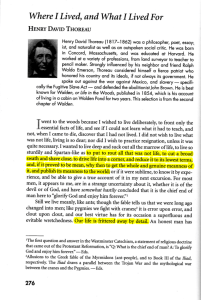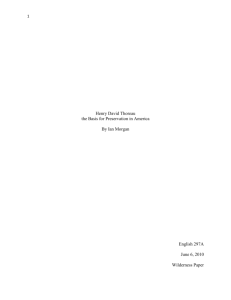Truth Draft 2
advertisement
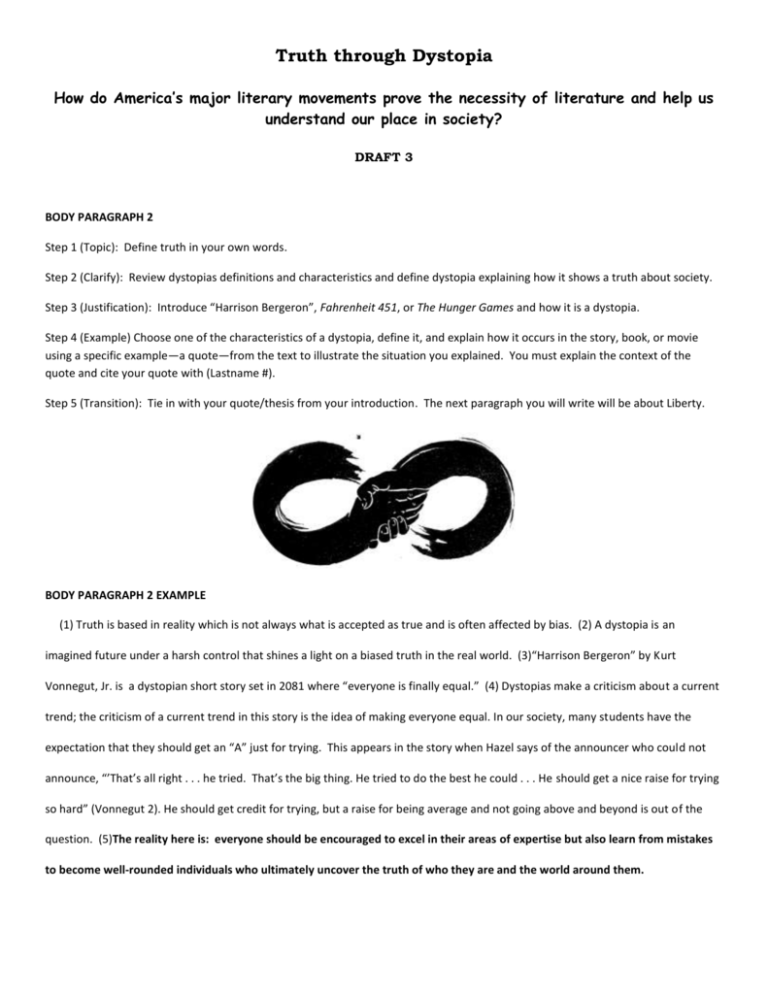
Truth through Dystopia
How do America’s major literary movements prove the necessity of literature and help us
understand our place in society?
DRAFT 3
BODY PARAGRAPH 2
Step 1 (Topic): Define truth in your own words.
Step 2 (Clarify): Review dystopias definitions and characteristics and define dystopia explaining how it shows a truth about society.
Step 3 (Justification): Introduce “Harrison Bergeron”, Fahrenheit 451, or The Hunger Games and how it is a dystopia.
Step 4 (Example) Choose one of the characteristics of a dystopia, define it, and explain how it occurs in the story, book, or movie
using a specific example—a quote—from the text to illustrate the situation you explained. You must explain the context of the
quote and cite your quote with (Lastname #).
Step 5 (Transition): Tie in with your quote/thesis from your introduction. The next paragraph you will write will be about Liberty.
BODY PARAGRAPH 2 EXAMPLE
(1) Truth is based in reality which is not always what is accepted as true and is often affected by bias. (2) A dystopia is an
imagined future under a harsh control that shines a light on a biased truth in the real world. (3)“Harrison Bergeron” by Kurt
Vonnegut, Jr. is a dystopian short story set in 2081 where “everyone is finally equal.” (4) Dystopias make a criticism about a current
trend; the criticism of a current trend in this story is the idea of making everyone equal. In our society, many students have the
expectation that they should get an “A” just for trying. This appears in the story when Hazel says of the announcer who could not
announce, “’That’s all right . . . he tried. That’s the big thing. He tried to do the best he could . . . He should get a nice raise for trying
so hard” (Vonnegut 2). He should get credit for trying, but a raise for being average and not going above and beyond is out of the
question. (5)The reality here is: everyone should be encouraged to excel in their areas of expertise but also learn from mistakes
to become well-rounded individuals who ultimately uncover the truth of who they are and the world around them.
Sara M. M. Leonetti
Mr. McFarland
LA11, Period 1
Note: Numbers are indicated in paragraphs to show
which step they meet; DO NOT number your
paragraphs. DO NOT BOLD OR INCLUDE A
QUESTION AS YOUR THESIS!
23 Oct. 2013
Be Yourself
(2) Life is darkened by illusions. A person thinks she knows her beliefs then suddenly, when she reads something new, she is dazzled
by a reality she never considered before. (3) One of the great works of literature selected by Mortimer J. Adler, a prominent
philosopher, is Plato’s Republic in which he describes “The Cave.” In this selection, one of the men who was chained in the cave was
set free, and when he came into the world, he was blinded by the reality that he first saw. He later came to love the brilliance he
encountered because he understood it set him apart from his fellow cave-dwellers. (1) Emerson once said, “To be yourself in a
world that is constantly trying to make you something else is the greatest accomplishment,” and this is what the man released from
the cave, and I when I read it, came to realize. (4) Being myself has meant sharing my love of literature with a world of teenagers
who, for the most part, would rather not read, but we cannot know what we believe about Adler’s Great Ideas of justice, truth,
liberty, goodness, beauty, and equality until we know what we do not believe, and the only way to do that is to illuminate the
darkness of ignorance with knowledge. (How do {we} illuminate the darkness of ignorance with knowledge?)
(1) Transcendentalism is based on the belief that the individual is greater than any institution. These beliefs are part of the
foundation for civil disobedience which has been used by everyone from Gandhi to Martin Luther King, Jr. to bring about justice. (2)
Henry David Thoreau coined the phrase civil disobedience after being arrested for not paying his taxes. (3) Thoreau refused to pay
the tax that was used to support the war with Mexico which he thought was being fought to expand slave-holding lands. Because he
did not pay the tax, he spent a night in jail where he was inspired to write “Resistance to Civil Government.” (4)This essay teaches to
treat everyone fairly through ethical and emotional appeal when he asserts that each person has a moral duty to not support wrong
doing. In other words, the individual has an obligation to be consistent, not publicly saying one thing while silently allowing contrary
things to happen. Thoreau exemplifies this with, “that . . . if one HONEST man, in the State of Massachusetts, ceasing to hold slaves,
were actually to withdraw from this copartnership, and be locked up in the county jail therefor, it would be the abolition of slavery
in America” (Thoreau 214). Thoreau, here, was reiterating what Emerson said about being yourself in a world trying to make you
something else. With this essay, Thoreau was the forerunner in a historic battle to bring equality to all which continued with
Gandhi’s fight in South Africa to Martin Luther King, Jr.’s fight in the United States to our fight today to ensure that everyone is
treated equally without bias.
BODY PARAGRAPH 2 EXAMPLE ON FRONT

